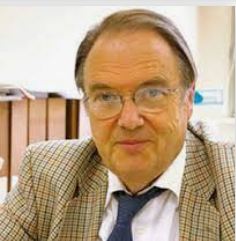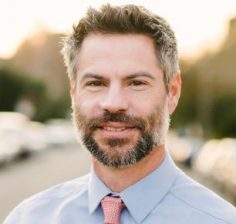Translation of an interview published in ATLANTICO 20 Nov 2021 – Societal drama (1)
oOo
More than 100,000 people in the United States died of opioid overdoses in 2020. Does this American crisis foreshadow a similar tragedy in our country?
Jean Costentin (2) and Michael Shellenberger (3)
Atlantico: Tens of thousands of Americans died of overdose in the course of 2019 and 2020. The ultra-liberalisation of drugs in the United States is pointed out. What factors may have led to this heavy toll? Can the drugs currently in circulation have a responsibility in this aggravation?
Jean Costentin: More than 100,000 Americans died last year from opioid overdoses, a figure that increased by 29% in a single year. One hundred thousand deaths is more than the number of victims of road accidents added to the victims of firearms.
This is the result of unbridled prescription of powerful painkillers by American doctors. The Human “2020 Model” tolerates less and less the pain and asks the physician for a rapid and complete relief. Competitiveness between practitioners sets up the competition for the one who will do it the best and the fastest. To do this, instead of starting with paracetamol and then using low doses of non-steroidian anti-inflammatory then, if failed, proceed to the addition of codeine to paracetamol, then if necessary, use tramadol; their temptation is strong to start immediately with more powerful opioids (buprenorphine) or very powerful (oxycodone).
A phenomenon common to this class of drugs is the installation of a tolerance, it is a decrease in the effect during use, resulting in increased doses and frequency of their administration, until the effect is deemed insufficient and requires the use of more powerful molecules. The respiratory depressant effect does not give rise to tolerance and at high doses of morphine analgesic overdose occurs. The subject “forgets to breathe”, he suffocates in bliss.
New opioids have emerged, particularly from the chemical family of anilinopiperidins, the fentanyls; the power of some confines to war poisons, being lethal at doses in the order of one millionth of a gram (microgram) per individual. Tempted by the power of some of these molecules, spread by drug dealers, patients that medical prescriptions have made dependent on morphine, will engage in it, and for a number of them to die.
This situation also seems to be linked to the legalization of cannabis in the U.S.A. The strongest
increase in opioid lethality (+70%) was observed in the State of Vermont which legalized the so-called “therapeutic” cannabis in 2004, followed in 2018 by the legalization of cannabis scandalously described as recreational (because often the “recess” ends badly). This is in other “leading” States in this legalization that the increase is between 35 and 48% (Colorado, California, Oregon, Washington). In States that have legalized cannabis, with strict regulation and pedagogy, the increase is from the lowest level. Finally, in States that have not legalized cannabis instead of an increase, it is even a decrease in deaths that is observed, as in South Dakota (- 20%).
These figures can be explained by the intervention of the epigenetic effects of cannabis (due to THC), the mechanisms of which are now precisely known, by which the use of this drug increases the appetence of its users for morphinic drugs.
Michael Shellenberger: The cause of these 100,000 deaths is the normalization of drug abuse and the liberalization of drug laws. Many of these deaths are the result of poisoned children taking what they thought were prescription drugs purchased from dealers met on Snapchat. Many others were drug addicts who had first been hooked to opioids on prescription, then switched to heroin, and more recently to fentanyl.
It is true that Covid is partly responsible for this increase, and that America has failed miserably in the treatment of addiction. Many of these deaths due to the drug are due to self-medication by people, including homeless people housed in hotel rooms, who suffer from more serious mental health problems caused by isolation created by Covid. And America does not have an operational mental health care system capable of providing individuals with untreated mental illness and substance abuse the psychiatric and rehabilitation care they need.
But the number of deaths increased gradually between years 2000, when only 17,000 people died, and 2020, and the underlying reason is standardization and liberalization of drug laws. The United States has liberalized the opioid drugs prescription from the late 1990s. It is true that the United States has tightened prescribing rules in 2010, when many opioid addicts turned to heroin. But cities and States have also liberalized laws on drugs, especially against the open scenes of drugs in cities, called by euphemism “homeless camps”, where drug dealers and buyers meet. And American society has progressively normalized, even glorified, the use of medicines and of hard drugs for 20 years.
The Netherlands also experienced a drug-related mortality crisis. They solved it by arresting drug traffickers and imposing the detox as an alternative to prison. Why this method does work? What is the incidence of relapse after detoxification?
Jean Costentin: Drying up the supply, making it more difficult is part of the response. Detoxification in a closed environment, the highly controlled use of substitution substances: methadone, buprenorphine, in decreasing doses (and not the misuse that is made of it in France, where nearly one hundred thousand beneficiaries, at gold prices for the collectivity, intravenously inject this commercialized molecule to end the injection behavior of heroin addict (look for the error and above all, let’s marvel at the guilty laxity of the authorities responsible for prolonging this situation). The impact relapses after detoxification is quite high. It seems that “dry” withdrawal, without substitution, leaving the painful memory of the pangs of abstinence, would expose less to relapses, but they are exceptionally practiced in France.
What about the impact of drugs in France? What lessons can we learn from the United States crisis?
Jean Costentin: The annual number of overdoses in France is about 600 deaths.
We should be reassured by the fact that the majority of our doctors have acute knowledge
of our national propensity to succumb to drugs (cf. the number of smokers, of alcoholics and cannabinophiles). Yet we are not immune to such tragedy. Our fellow citizens are less tolerant of pain and are betting much more on analgesics to be relieved. Addictologists, by ideology, freeing themselves from medical concerns, advocate for the legalization of all drugs. The lobbies, pushed by huge economic interests, subvert to the level of the national representation of Members of Parliament and Senators, who engage in a shameless promotion of cannabis. This raises concerns about further expansion of cannabis, while we are already its largest consumers in Europe. The relationship between the cannabis and the appetence for morphinic substances, obviously cause fear that the epigenetic fingerprint of its THC has the consequences that we have seen on the craving for morphinic substances.
References
(1) https://atlantico.fr/article/decryptage/ces-lecons-que-nous-devrions-retenir-de-la-vague-ma
(2) Jean Costentin is a member of the French National Academies of Medicine and Pharmacy and a Professor emeritus at the Faculty of Medicine and Pharmacy of Rouen where he heads a research unit of neuropsychopharmacology associated with the CNRS. He is also author and Director of the CNPERT (https://drogaddiction.com/qui-sommes-nous/)
(3) Michael Shellenberger is an American journalist, author of a number of books and environmental activist. Founder of the Environmental Progress association and of the think tank Breakthrough Institute, he claims to be an eco-modernist, of which he is one of the signatories of the manifesto. More on: https://en.wikipedia.org/wiki/Michael_Shellenberger
Thank you for your interest




